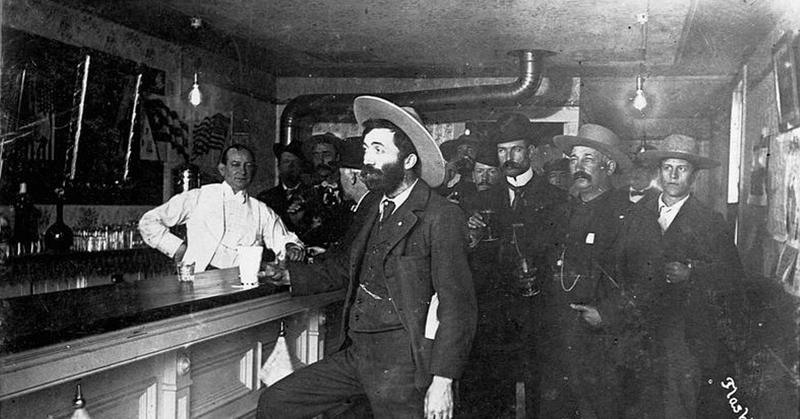Soapy Smith: When A Slippery Con Man Got His Comeuppance
By | July 6, 2022

Jefferson Randolph Smith II, also known as Soapy Smith, and his "Soap Gang" made their living with crooked schemes, rigged card games, and clever cons on the western frontier. For a time, they were quite successful, but on July 8, 1898, Soapy Smith got his bubble popped.
Slippery Soapy Smith
Soapy Smith earned a reputation as the "king of the frontier con men" thanks to his boldness, his ability to befriend and pay off law officials, and his loyal band of followers, including the likes of Texas Jack Vermillion and Big Ed Burns, who helped him pull off rigged card games and other betting games. His most lucrative con, and the one that earned him his nickname, was his soap scheme. He set up a stand on a busy street corner to sell packaged bars of soap, working the crowd until everyone felt at ease, then pulled out some cash (usually a few one-dollar bills and one hundred-dollar bill), took the packaging off a few bars of soap, wrapped the bills around the bars, and repackaged them. He made a great show of mixing around the bars of soap, but Smith knew exactly which bars contained the money, which were always "won" by a member of his gang. Smith was eventually arrested for running this con, and when the officer wrote his report, he forgot Smith's name and wrote "Soapy" instead.

Skagway, Alaska
With the money Smith collected from his soap racket and other cons, he opened a saloon and gambling house in Denver in the early 1880s. In addition to swindling the gamblers, he sold fake lottery tickets, fake stocks in nonexistent companies, fake watches, and fake diamonds and gold. When a new governor vowed to clean up the corruption in Denver, Smith and his gang headed to the boomtown of Creede, Colorado, then Skagway, Alaska, where the Klondike Gold Rush attracted gullible newcomers. In one of his boldest cons, Smith set up a bogus telegraph office and charged customers to send messages to loved ones back home several years before telegraph lines reached Skagway.

The End Of Soapy Smith
Smith was eventually brought down by the Committee of 101, a vigilante group of mostly miners who banded together to keep order on the Alaskan frontier. On July 7, 1898, Smith's gang stole a bag of gold from a Klondike miner named John Douglas Stewart worth more than $82,000 in today's money, so Stewart reached out to the Committee for help. The next evening, they called a meeting with Smith at the Juneau Wharf. A fight broke out, shots were fired, and both Smith and Committee member Frank H. Reid fell to the ground. Smith died instantly, while Reid took 12 days to succumb to his injury. More than 100 years later, Skagway still celebrates the Soapy Smith Wake every year on July 8.

